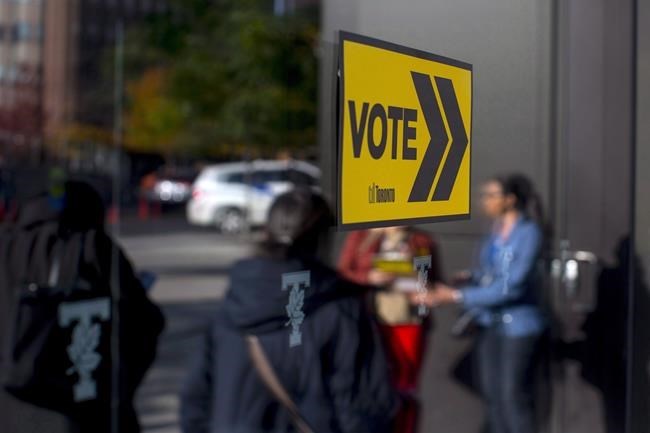TORONTO — Kris Langenfeld has run for mayor in Toronto twice already – and has lost both times – but that isn't stopping him from trying his luck again.
While he didn't raise funds or use volunteers in his previous attempts, he says he's building a campaign website this time around and is taking donations that could see him hire staff and pay for advertisements for the first time.
But he knows he faces an uphill battle.
"I put my faith in God," he says in an interview. "It would certainly surprise me to win."
The carpenter and former accountant is among the 50 candidates who have registered to run in Toronto's mayoral byelection, set for June 26. The race was triggered after John Tory resigned in February following an admission of an affair with a staffer.
While much attention has focused on the high-profile contenders – including councillors past and present, a provincial politician and a former police chief – the race also features dozens of lesser known residents, like Langenfeld.
Experts say the so-called "fringe" candidates are an important feature of an open, democratic election, although a crowded field could make it tougher for voters to make a choice.
For Langenfeld, running a third time was motivated by his opinion that "career politicians" have led Toronto in the wrong direction for too long.
"Those are the people that got us into the situation we are in now,” he says. "The idea that they're now saying, oh well, the only reason that we have all these problems is that they weren't in charge, while they were sitting at the table – I just don't buy it."
The 56-year-old's campaign promises include building more affordable housing and tackling violence on transit.
Sandeep Srivastava, who ran unsuccessfully in the last municipal election, also feels city services have deteriorated and has thrown his name into the ring once more.
"They're not working for (the) people of Toronto," he says, referring to Toronto's past leaders.
Srivastava, who says he deserves votes because he's a "positive thinker," is promising more affordable housing as well as a four-year tax freeze and stronger support for those experiencing a mental health crisis.
Isabella Gamk, who currently receives disability benefits and lives in a seniors' housing complex in Toronto, is running for mayor to draw attention to issues she says need tackling.
She would work to increase disability benefits and create more affordable housing as mayor.
"I have the nerve to stand up and fight," she says. "I have the nerve to stand up to the federal (and) provincial government."
Randy Besco, who teaches political science at the University of Toronto, says in a crammed electoral slate, some candidates have clearer shots at office, others compete to highlight issues they care about and some participate to gain recognition that could help their future ambitions.
"In an open democracy, everyone should be eligible for office, or at least most people should," he says. "That is just part of running free and fair elections."
But too many names on the ballot could be hard on voters, he says.
“With a lot of candidates, it can be very confusing for voters," he says. "For them to learn what are the policy positions of 40 different candidates, that is very hard."
Geoffrey Cameron, a political science assistant professor at McMaster University, says the lack of an incumbent in this mayoral byelection is a key reason for the large number of competitors.
"Toronto mayoral elections have generally had at least one very strong candidate who has won by a significant margin,” he says.
“The fact that there is no incumbent this time would be the primary reason we are seeing so many people run.”
Nomination's for Toronto's mayoral byelection close May 12.
This report by The Canadian Press was first published April 26, 2023.
Sharif Hassan, The Canadian Press

